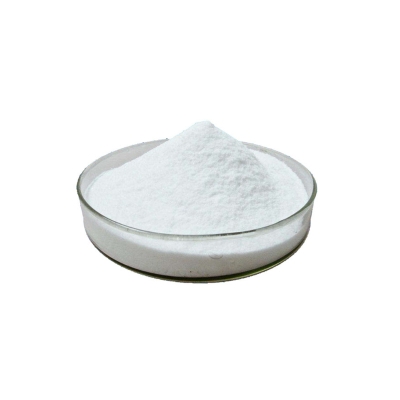-
Categories
-
Pharmaceutical Intermediates
-
Active Pharmaceutical Ingredients
-
Food Additives
- Industrial Coatings
- Agrochemicals
- Dyes and Pigments
- Surfactant
- Flavors and Fragrances
- Chemical Reagents
- Catalyst and Auxiliary
- Natural Products
- Inorganic Chemistry
-
Organic Chemistry
-
Biochemical Engineering
- Analytical Chemistry
-
Cosmetic Ingredient
- Water Treatment Chemical
-
Pharmaceutical Intermediates
Promotion
ECHEMI Mall
Wholesale
Weekly Price
Exhibition
News
-
Trade Service
▎WuXi AppTec Content Team Editor Recently, Denali Therapeutics announced updated long-term data from an ongoing Phase 1/2 clinical trial of its investigational enzyme replacement therapy DNL310
.
DNL310 is an enzyme replacement therapy developed by the company using enzyme transport vehicle (ETV) technology that can cross the blood-brain barrier and is designed to treat mucopolysaccharidosis type II (MPS II, also known as Hunter syndrome) in the central nervous system ( CNS) and peripheral symptoms
.
Long-term data from 20 patients showed that after up to 1 year of administration, the drug could continue to reduce the level of disease-related biomarkers in the patient's brain, and initially improve clinical symptoms, with a good safety profile
.
Based on the clinical phase and preclinical data to date, Denali plans to initiate a Phase 2/3 clinical trial in the first half of this year to evaluate the efficacy and safety of DNL310 in patients with MPS II
.
MPS II is a rare neurodegenerative lysosomal storage disorder caused by mutations in the gene encoding the IDS protease
.
Decreased or lost IDS enzymatic activity results in the accumulation of toxic metabolites that cause lysosomal dysfunction and neurodegeneration as well as progressive damage to multiple organs including bone, cartilage, heart, and lung
.
The current standard of care is enzyme replacement therapy, but they do not address the CNS symptoms of the disease because the enzymes do not adequately cross the blood-brain barrier
.
The blood-brain barrier is critical in maintaining the brain microenvironment and protecting it from harmful substances and pathogens in the blood circulation
.
However, it generally prevents most drugs from reaching the brain, posing a major challenge to drug development to treat CNS disorders
.
Denali's transporter platform links therapeutic macromolecules to engineered Fc fragments that bind to natural transport receptors, and utilizes natural transport receptors expressed on the blood-brain barrier to deliver macromolecules through transcytosis to the brain
.
▲Denali’s transporter platform (Image source: Denali’s official website) In the trial, all patients had neuronal disease except for 1 patient in cohort B who had non-neuronal disease MPS II
.
The median age of patients in both cohorts was 6 years, and all patients received DNL310 once weekly intravenously
.
In cohorts A (n=5) and B (n=15), the cerebrospinal fluid (CSF) levels of heparan sulfate (HS) were reduced to normal levels in all patients at week 24 of DNL310 treatment, cohort A All patients maintained this level at week 49
.
A rapid response was observed in most patients after 4-6 doses of DNL310, including those receiving a lower dose regimen of DNL310, consistent with DNL310 crossing the blood-brain barrier and producing activity in CNS tissue
.
Long-term data from the trial demonstrated durability of CSF biomarker responses up to one year of dosing
.
Moreover, CSF lysosomal lipid biomarkers decreased further with prolonged DNL310 treatment, consistent with improved lysosomal function
.
CSF GM3 ganglioside levels returned to normal at week 49 in cohort A (n=5) and at week 24 in cohort B (n=9/12)
.
In addition, exploratory clinical outcome data at week 24 for both cohorts A and B, based on the Clinician's CGI-CGI scale assessment (CGI-C), showed that overall MPS II symptoms, cognitive abilities, and behaviors were present in the majority of patients compared to baseline.
Clinical improvement
.
In terms of safety, the drug is generally well tolerated, with a safety profile consistent with standard treatment over 1 year
.
Dr.
Carole Ho, Chief Medical Officer of Denali, said: "The current longer-term Phase 1/2 clinical data support DNL310 as a differentiated enzyme replacement therapy to rapidly normalize patients' CSF with heparan sulfate administered intravenously every week.
, maintained improvements in biomarkers of CSF lysosomal function
.
We were also pleased to observe that the majority of patients experienced improvements in exploratory clinical outcomes following the 6-month open-label period of DNL310 treatment
.
These data continue to support a 2022 A potential registrational Phase 2/3 clinical trial of DNL310 will be initiated in the first half of this year
.
” Reference: [1] Denali Therapeutics Announces Continued Progress in DNL310 (ETV:IDS) Program for MPS II (Hunter Syndrome) Supporting Planned Initiation of Phase 2/ 3 Clinical Trial.
Retrieved February 10, 2022, from https:// Disclaimer: WuXi AppTec content team focuses on global biomedical health research progress
.
This article is for information exchange purposes only.
The views expressed in this article do not represent WuXi AppTec's position, nor do they represent WuXi AppTec's support or opposition to the views expressed in the article.
.
This article is also not a treatment plan recommendation
.
For guidance on treatment options, please visit a regular hospital
.







